Childrens Books about Respect
Welcome to a world of kindness, empathy and life lessons with this collection of Childrens Books about Respect, just one of our many lists for childrens books.
Respect is a fundamental value that plays a vital role in a child’s social and emotional development, but young children don’t instinctively know how to be! They’re looking to us as parents, teachers and mentors to show them how to act and behave towards others.
In these carefully selected books, young readers will embark on journeys of understanding, empathy and the importance of treating others and the world with consideration.
You can find these childrens books about respect at your local library or purchase through the links provided for your convenience.
This post contains affiliate links.
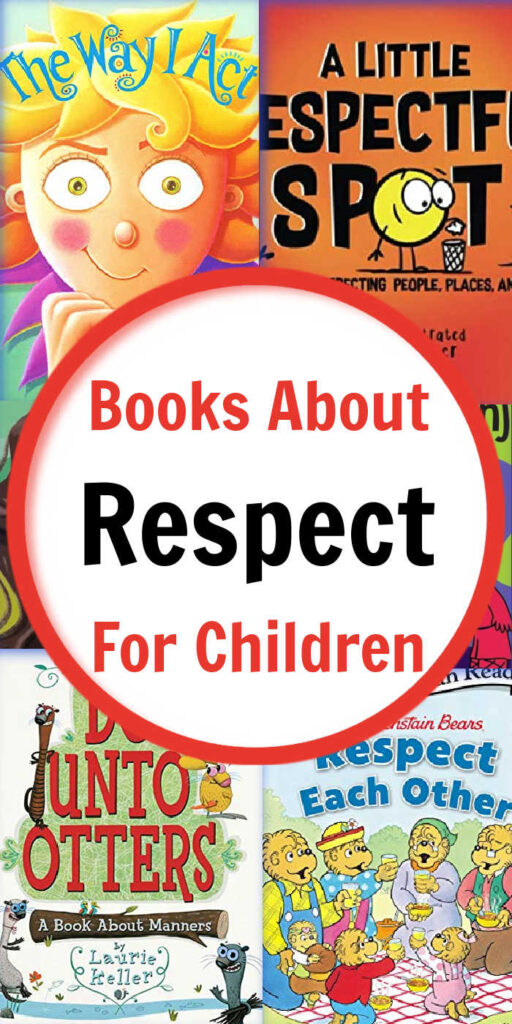
Through heartwarming stories and engaging characters, these books teach children about the power of respect, whether it’s respecting others’ feelings, differences or the environment.
As children explore these pages, they’ll discover valuable lessons that will stay with them throughout their lives – because foundations of good citizenship are built, one story at a time.
Childrens books about respect are also an important part of Social Emotional Learning Books for kids. I recommend you also look at Childrens Books About Empathy.
Learn about how to teach SEL At Home or Social Emotional Learning Activities.
Can Respect Be Taught?
Respect is a fundamental value that can and should be instilled in children from a young age, and yes, respect can be taught!
Here are some ways you can teach respect to your child:
Modeling Behavior: Children often learn by observing the behavior of adults and caregivers. If they see respectful behavior in you as their parent, they are more likely to emulate it.
Clear Expectations: Set clear expectations for respectful behavior and boundaries. Explain to your child what respect means and why it’s important in various contexts, such as at home, school and in the community.
Teaching Empathy: Help your child develop empathy by encouraging them to consider the feelings and perspectives of others. Books and stories like these childrens books about respect that explore different viewpoints and emotions can be helpful.
Effective Communication: Teach your children effective communication skills, including active listening and expressing themselves in a respectful manner. Encourage open dialogue and problem-solving.
Respect Coloring Pages Activity Social Emotional Learning – Teaching Children Respect – Full Lesson Plan and Activities
Social Emotional Learning – Teaching Children Respect – Full Lesson Plan and Activities Respect Lapbook Activity
Respect Lapbook Activity Teaching Respect through Empathy, Character Education and Classroom Community Activity Worksheets
Teaching Respect through Empathy, Character Education and Classroom Community Activity Worksheets
Conflict Resolution: Show your child how to resolve conflicts peacefully and respectfully. Teach them negotiation and compromise skills rather than resorting to aggression or disrespectful behavior.
Consistency: Be consistent in your expectations and consequences for disrespectful behavior. Children need to understand that respect is not negotiable and that there are consequences for disrespectful actions.
Positive Reinforcement: Acknowledge and praise respectful behavior. Positive reinforcement, such as verbal praise or rewards, can motivate your child to continue practicing respect.
Education: Use age-appropriate educational materials, including books, videos and activities, to help children understand the concepts of diversity, inclusion and respect for all people, regardless of differences.
Junior Learning Social Skills Board GameSkillEase Social Emotional Learning Activities, Emotions and Feelings GameThought-Spot: MAD SMARTZ: an Interpersonal Skills Card Game for Anger & Emotion Control, Empathy, & Social SkillsEmotional Rollercoaster | Anger Management Board Game for Kids & Families
Real-Life Examples: Share real-life stories and examples of individuals who have shown respect and made a positive impact on the world. These stories can inspire children to do the same.
Encourage Questions: Create an environment where your child feels comfortable asking questions and seeking clarification about respect and related topics.
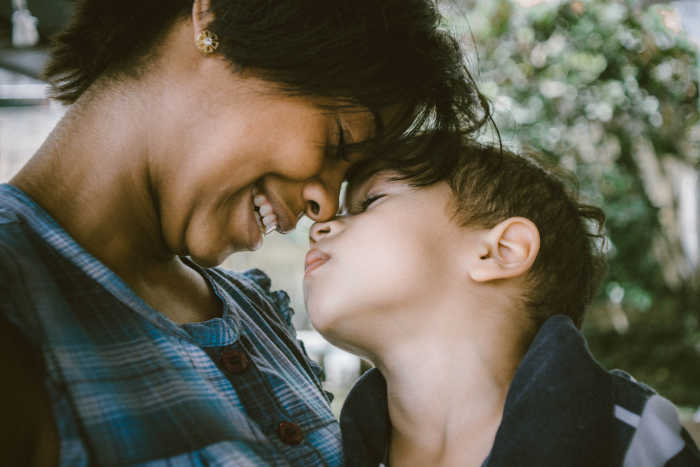
Teaching respect is an ongoing process that involves reinforcement and guidance as children grow and face new situations. Respect a vital foundation for healthy relationships, good citizenship and positive social interactions.
Respect is Earned, Not Given
In my home, the saying “respect is earned, not given” means that respect is not automatically granted to individuals but must be deserved based on their actions, behavior, character or achievements.
While the saying “respect is earned, not given” underscores the importance of individual actions and character, it doesn’t mean that individuals should start from a position of disrespect.
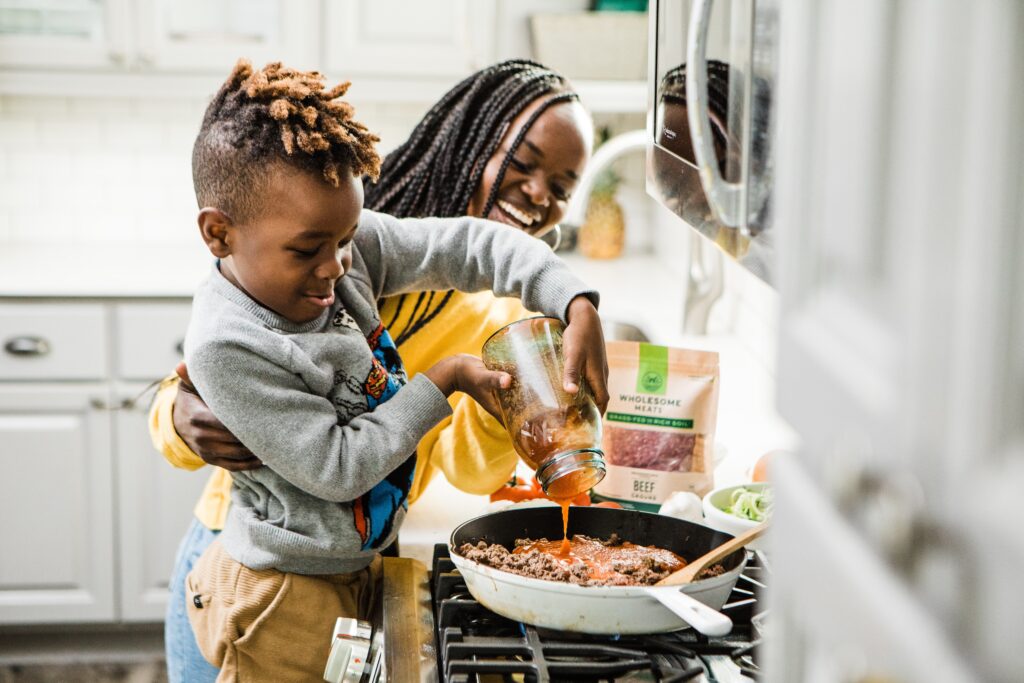
Common courtesy and basic respect should be extended to all individuals as a starting point, but deeper, more profound respect is earned through time and actions.
Respect vs. Obedience
And speaking of earning respect – obedience is not respect. While respect and obedience can coexist, they are not the same.
Respect is about acknowledging an individual’s worth and treating them with kindness and consideration, often regardless of their position. Obedience, on the other hand, is about following specific orders or rules, typically from an authority figure, and is often context-dependent.
Respect is a deeper and more comprehensive concept that encompasses how we treat and regard others, while obedience is a specific response to commands.
The Whole-Brain Child: 12 Revolutionary Strategies to Nurture Your Child’s Developing Mind No-Drama Discipline: The Whole-Brain Way to Calm the Chaos and Nurture Your Child’s Developing Mind
No-Drama Discipline: The Whole-Brain Way to Calm the Chaos and Nurture Your Child’s Developing Mind Raising Good Humans: A Mindful Guide to Breaking the Cycle of Reactive Parenting and Raising Kind, Confident Kids
Raising Good Humans: A Mindful Guide to Breaking the Cycle of Reactive Parenting and Raising Kind, Confident Kids Good Inside: A Guide to Becoming the Parent You Want to Be
Good Inside: A Guide to Becoming the Parent You Want to Be
I have taught my children that people who demand their respect are, in fact, demanding their obedience.

So rather than laying out a million rules in my house, I just ask them if they feel that their behavior was respectful. Even at an early age they understood what that meant and then together we worked on how to correct themselves if it wasn’t.
How is Respect Part of Social and Emotional Learning
Respect is a key aspect of relationship skills, social awareness, responsible decision-making and self-management.
Respect in Social and Emotional Learning (SEL) means valuing and treating others with kindness, empathy, and consideration, fostering healthy and meaningful relationships. It also extends to self-respect, promoting self-awareness and the ability to manage one’s emotions and make responsible choices.
Social awareness within SEL emphasizes understanding and appreciating the perspectives and feelings of others, encouraging individuals to acknowledge and value differences.
Improve Every Lesson Plan with SEL Social-Emotional Learning and the Brain: Strategies to Help Your Students Thrive
Social-Emotional Learning and the Brain: Strategies to Help Your Students Thrive The Social-Emotional Learning Playbook: A Guide to Student and Teacher Well-Being
The Social-Emotional Learning Playbook: A Guide to Student and Teacher Well-Being SEL for Teachers: A Journal of Social Emotional Learning
SEL for Teachers: A Journal of Social Emotional Learning
In school, by incorporating respect into SEL curricula, educators empower students to develop essential social and emotional skills — promoting empathy, responsible behavior and constructive interpersonal relationships — that have been shown to serve them well both academically and in their personal lives.

Childrens books about respect is a great place to start or emphasize what you’re teaching!
SEL for Kids Starts At Home
As a parent, teaching Social Emotional Learning (SEL) to young children is crucial for their overall development. It helps your child understand and manage their emotions, fostering mental well-being.
SEL cultivates empathy, which is the foundation for healthy relationships and effective communication. These skills are essential for both academic success and life beyond the classroom.
Rather than formally teaching social and emotional skills, these should be integrated into the day to day interactions and activities for your kids.
All Learning Is Social and Emotional: Helping Students Develop Essential Skills for the Classroom and BeyondTeaching with a Social, Emotional, and Cultural Lens: A Framework for Educators and Teacher EducatorsThe SEL Toolbox: Social-Emotional Learning Activities to Teach Kids to Generalize Learned Skills to Real-Life SituationsThe Social-Emotional Learning Toolbox: Practical Strategies to Support All Students
By teaching SEL at home, you as a parent can empower your children to navigate the complexities of human interactions, making them more resilient and socially competent individuals.
More Information about Teaching Respect To Your Children
- Teach Your Children How to Say Sorry
- The Art of Teaching Children Kindness and Respect
- Help Your Child Set & Respect Boundaries
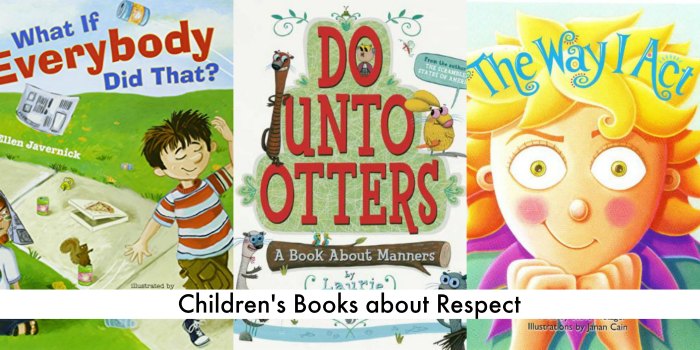
Our Favorite Children’s Book about Respect
Do Onto Otters is one of my boys’ favorite books of all time. I can easily say we’ve read this book a hundred times.
While I picked it as part of our home series for childrens books on respect, my boys just cared that the book was entertaining and funny.
Plus, we have the Do Onto Otters Audiobook, which is absolutely adorable by the way! I can’t recommend it enough.
CHILDRENS BOOKS ABOUT RESPECT
In her smart, playful style Laurie Keller highlights how to be a good friend and neighbor―simply follow the Golden Rule!
Mr. Rabbit’s new neighbors are Otters. But he doesn’t know anything about otters.
Will they get along? Will they be friends? Just treat otters the same way you’d like them to treat you, advises Mr. Owl.
Join a cute little yellow SPOT as he shows all the different ways to be respectful to people, places and things. With fun illustrations your child will be able to see actual scenarios that your child is in everyday!
From being polite, to respecting personal space and property, your child will have a clear understand of what it means to be respectful and why it's so important.
If you drop just one soda can out the window, it’s no big deal … right? But what if everybody did that?
Using humorous illustrations rendered in mixed media, these questions are answered in a child-friendly way and show the consequences of thoughtless behavior.
In this rhyming story, we see how respect is earned when given. We also observe how we can respect people, places, and things. Through colorful illustrations and rhythmic rhymes, the character learns coping mechanisms on how to deal with big emotions like anger.
Friendly, brave, considerate, curious, on the go. My actions show who I am now, and how I want to grow!
Explore the world of behavior through this delightful book of actions. The Way I Act takes a child on a journey through positive choices, with all the fun they can bring.
The Ploofers are visiting a new island and are excited to meet the residents. But when one islander singles out Little One as an adorable cutie pie, Little One isn’t happy and becomes frustrated with the way he is being treated. Will Little One learn to be assertive and stand up for himself?
Gramps and Gran go on a picnic with Mama and Papa Bear and the cubs. As the family searches high and low for the perfect picnic spot, they end up learning a few things about good manners and respecting others.
The Berenstain Bears Respect Each Other entertains readers while relaying the importance of the golden rule.
With a trip to the store for a new dress, a visit to a café for lunch, and a stop at the beauty salon for a new hairdo there were ample opportunities for her to practice her good manners.
That princess, who had been so helpful in the past, showed up again to guide her into being her best by being polite, courteous and in control of herself.
Now what could be better than being a princess? You’ll have to read the book to find out!
Everything has a place. Things last longer when we take care of them. Respect, responsibility, and stewardship are concepts that even young children can relate to — because they have things they value.
This book encourages children to pick up after themselves, put things back where they belong, and ask permission to use things that don’t belong to them.
Uses an advice-column format to define respect for others, respect for property, and respect for oneself, and demonstrates how respect is used in daily situations.
Children learn that having respect means treating everyone fairly.
But there are some types of respect that each person must earn for themselves–by keeping promises, by being honest in what they say and do, and being polite and respectful to others.
Most important of all, boys and girls learn that people who are different deserve just as much respect as close friends.
Respectful Ninja learns that showing respect is when you care how your actions impact others and the world. Find out how the Ninjas show and give respect.
Life is tough, but so are you!
Arin acts careless and rude — and other people are angry and upset. His parents and teacher tell him he needs to show respect. Confused and unhappy, Arin asks Grandma for help. They talk about how he would feel if someone broke his things or laughed at what he likes. Arin makes an effort to show respect to others and learns that everyone treats him better when he does.
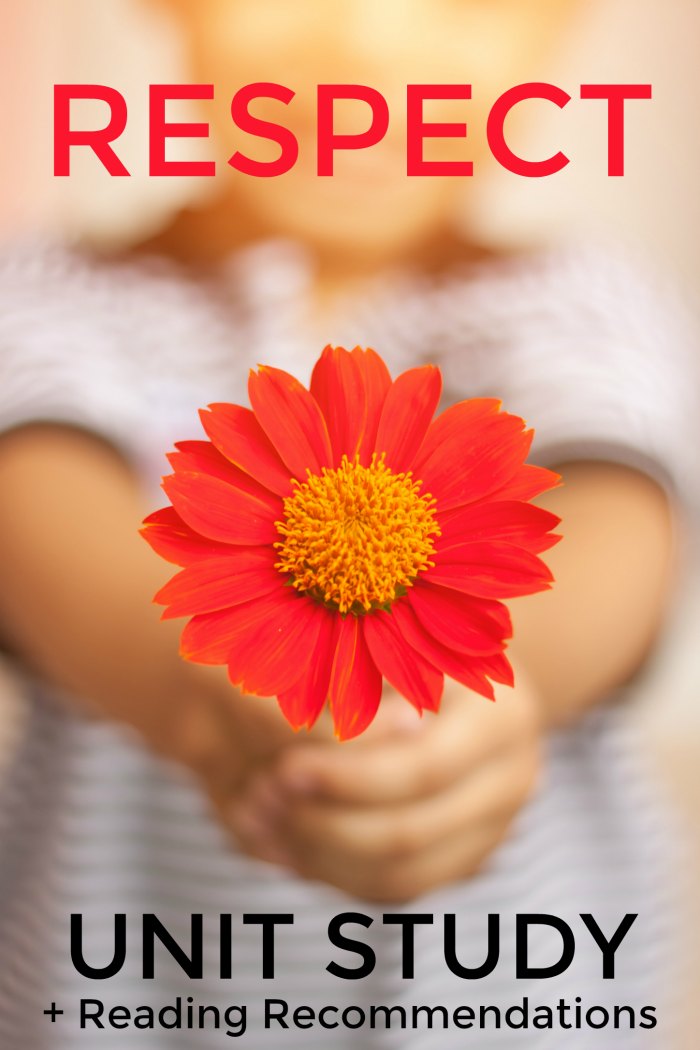

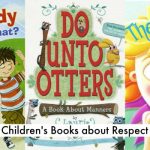


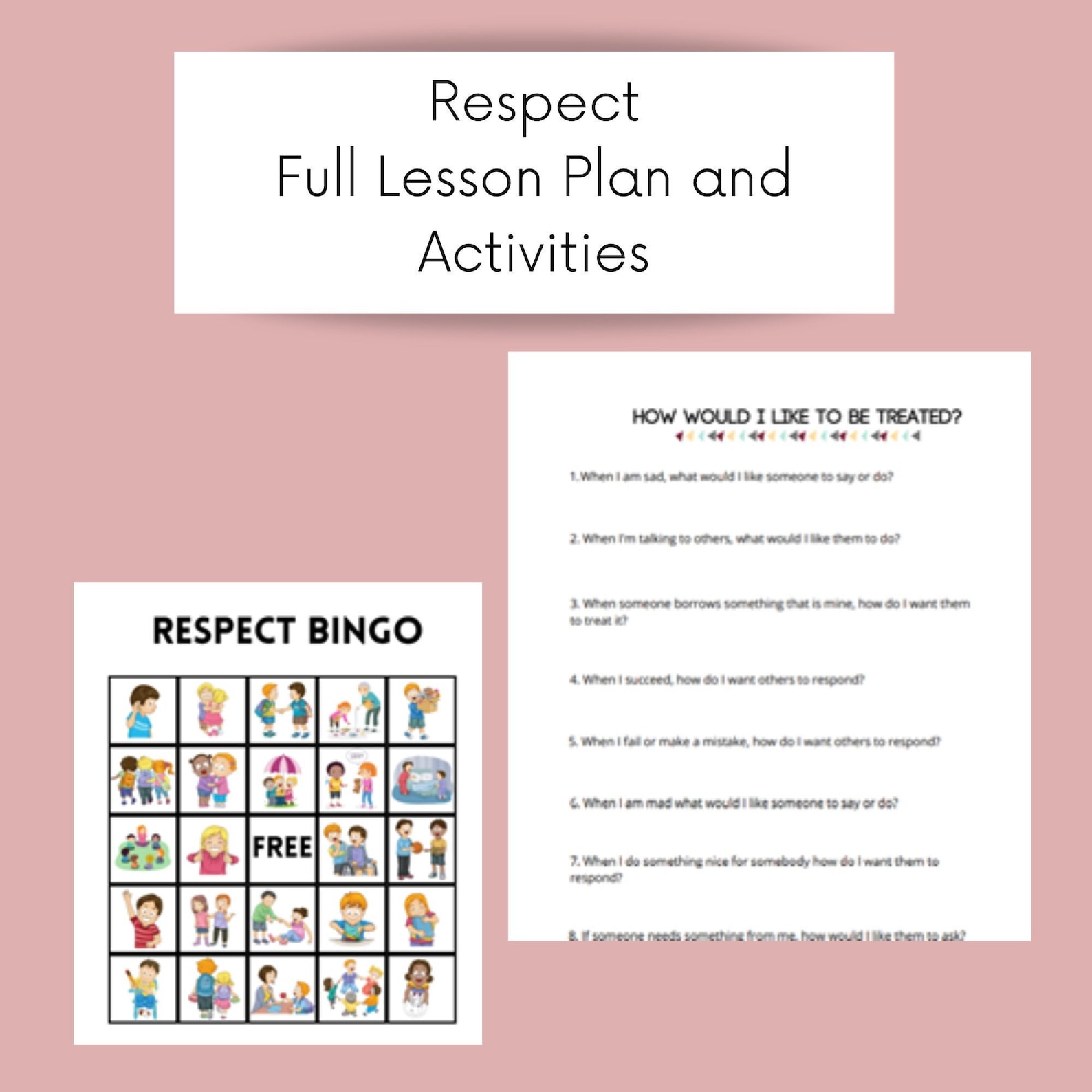
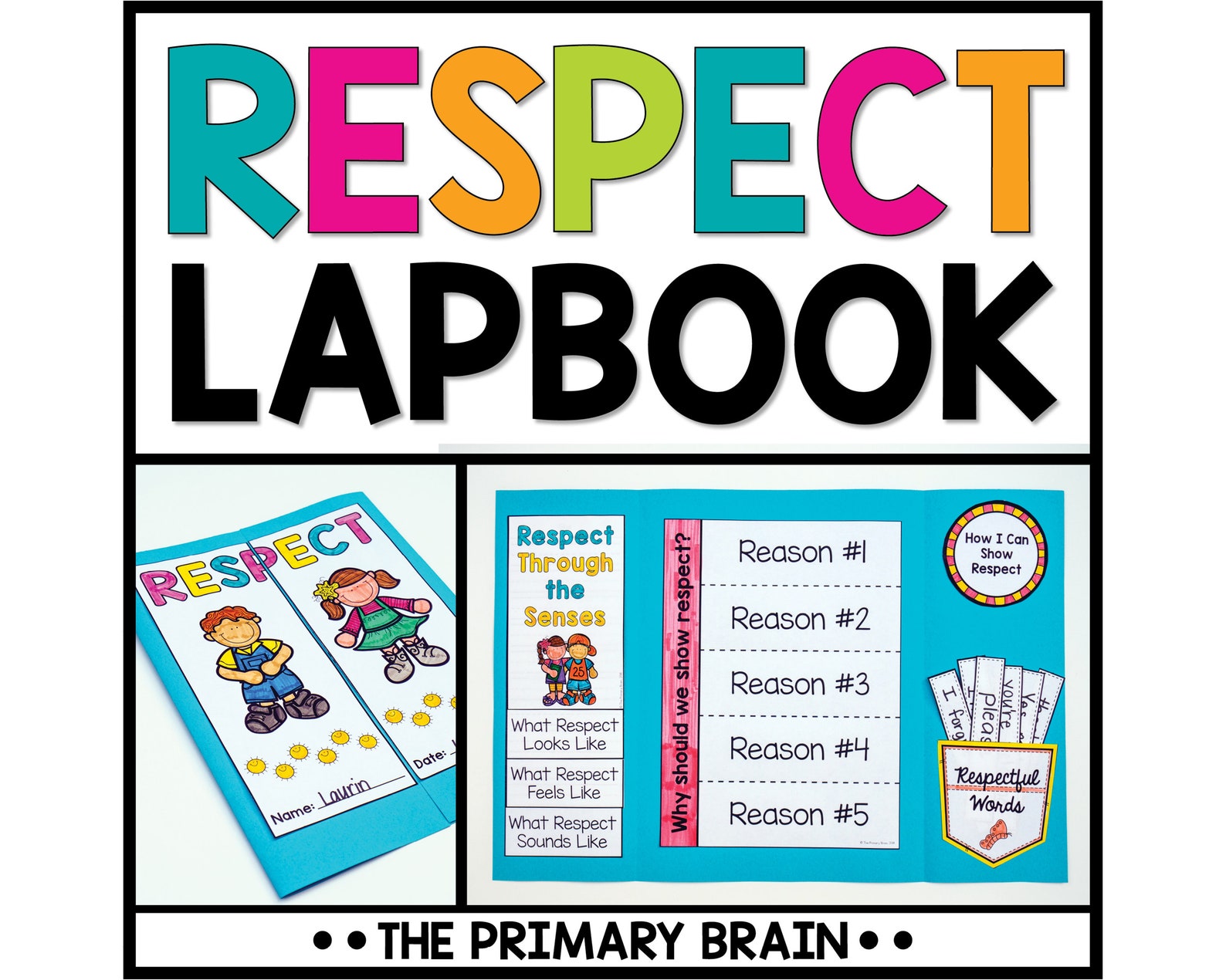






























First of all, you’re right to say that children deserve respect as well. Some people say that you don’t even need to teach kids anything, you just need to show things with your own example. But I think that reading books about respect and immersing yourself into the world of fun and exciting character would be a perfect quality time spending for you and your kids.